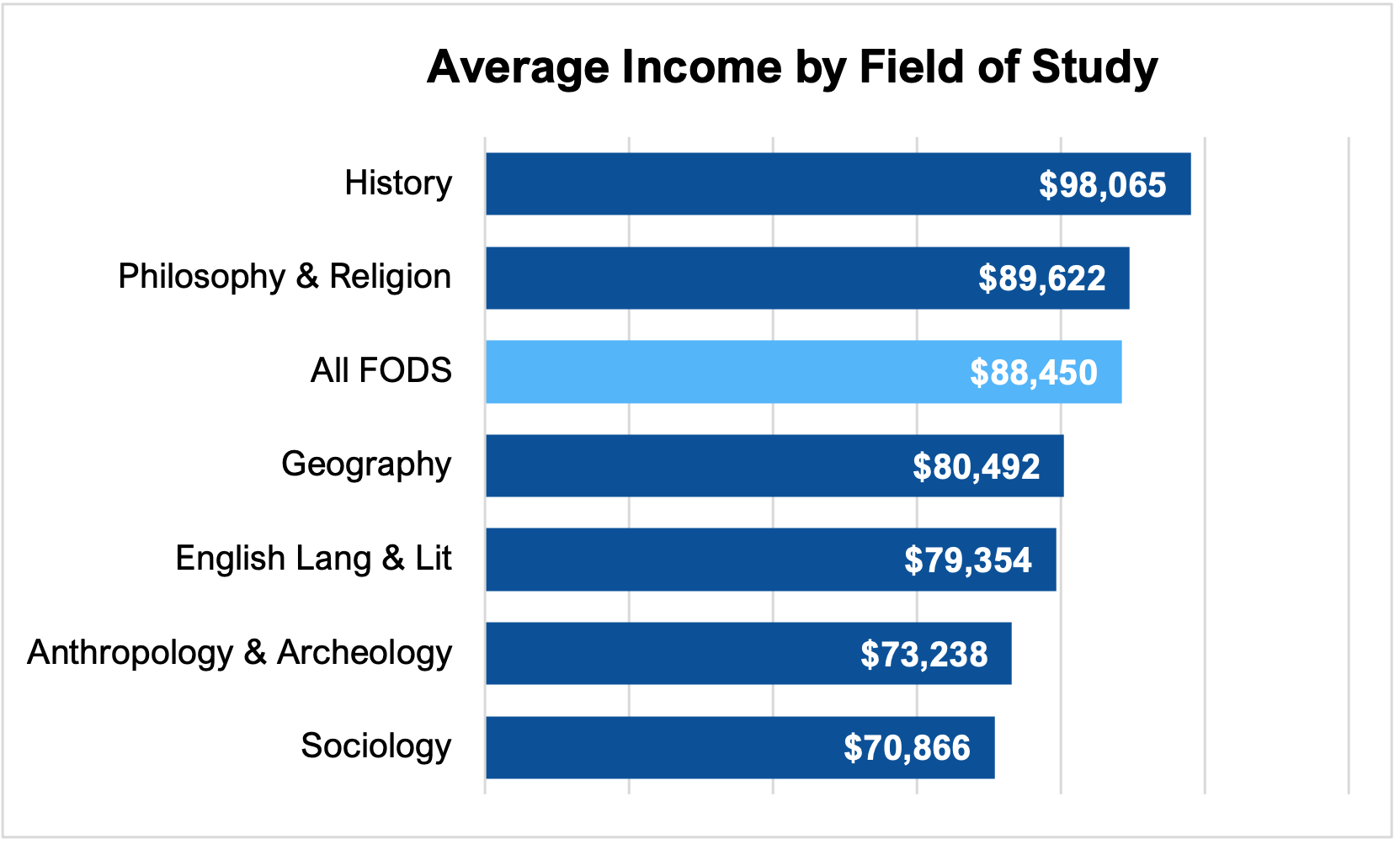Fall Back Careers for Humanities Majors
Humanities majors continue to take a bit of a beating in the press. A recent Washington Post article, citing a Federal Reserve study, bemoaned that 48 percent of humanities majors would choose a different field of study in hindsight. Underneath the headline, however, the article noted that humanities majors were not the only graduates who would choose a different field of study if given a chance. Forty percent of education majors would choose to study something else, as would one-third of health majors, to name a few. So it’s not just humanities majors who second-guess their educational choices.
Average Income by Field of Study
Nevertheless, we decided to delve deeper into what humanities majors do after they graduate from college. What we found was a little surprising. Despite the bad rap the humanities get, many (but not all) graduates earn more than the average for all fields of study.

Source: Gray DI analysis of US Census, American Community Survey
Share of Graduates in Direct-Prep Occupations by Major
Furthermore, unlike many other majors that prepare graduates for specific jobs, humanities majors go into a wide variety of occupations. Most nursing majors go on to become nurses. Likewise, most computer science majors go into computer science occupations. On the other hand, humanities majors are much more likely to go into occupations not directly related to their major.

Source: Gray DI analysis of US Census, American Community Survey and IPEDS Completions Data
Top 15 Occupations for Graduates in Each Major
So what do they actually do after graduation?
We looked at data from the American Community Survey to plot career paths for the largest humanities majors. The chart below shows the top 15 occupations for graduates in each major (by population). At the top were lawyers and judges (with average earnings ranging from $170,194 to $180,649). Teaching (across all levels) was another very popular career. Many other graduates go into various types of management positions, and quite a few even become CEOs and legislators.

Source: Gray DI analysis of US Census, American Community Survey
While there is nothing wrong with other majors, beating up the humanities may be a little misguided. Many young college students do not know precisely what they want to do “when they grow up” and often defer their choice until they apply to graduate school, especially in law and education. Overall, majoring in the humanities provides students with skills that are applicable across a wide range of occupations and career paths. The possibilities are seemingly limitless.




